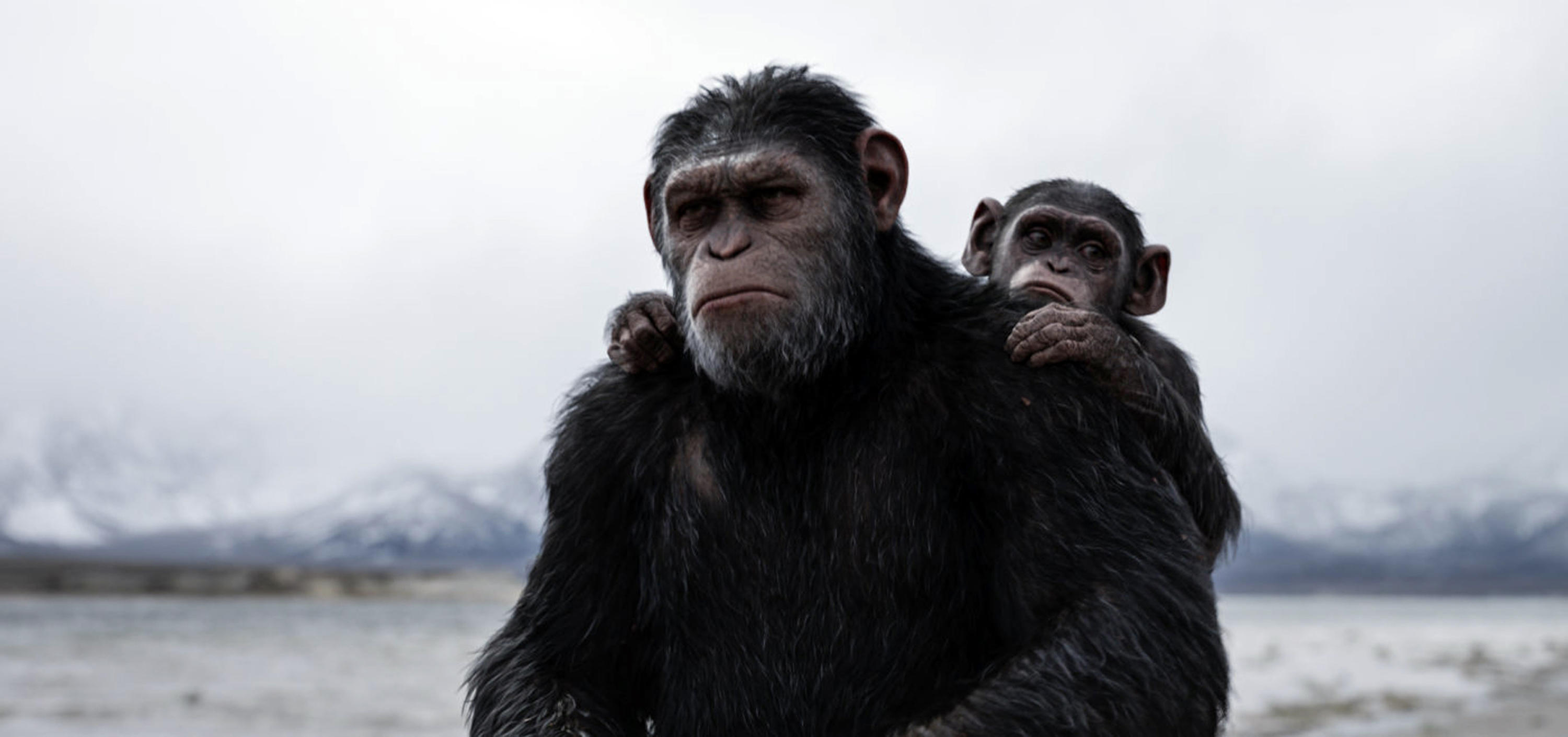Why War for the Planet of the Apes made me a vegetarian
When I left the theater, I vowed never to eat meat again


A free daily email with the biggest news stories of the day – and the best features from TheWeek.com
You are now subscribed
Your newsletter sign-up was successful
It was his eyes that got me.
Brown, deep-set eyes looking down from the big screen, as I watched in the darkened cinema. Eyes that held all the emotions — the distress, the hurt, the inconsolable despair of grief — that a father experiences upon losing his beloved child and wife. My rational mind ignored the fact that those eyes belonged to an ape. It didn't care that apes don't have wives. I was transfixed by the pain pouring out of the screen and into my own heart. As I left the cinema after watching War for the Planet of the Apes, all I could think was: "I can never eat an animal ever again."
It's a strange reaction to have, I know. But this film, this cinematic work of fiction, moved me to question what I eat in a way that no documentary about food or animals ever has. How was this possible?
The Week
Escape your echo chamber. Get the facts behind the news, plus analysis from multiple perspectives.

Sign up for The Week's Free Newsletters
From our morning news briefing to a weekly Good News Newsletter, get the best of The Week delivered directly to your inbox.
From our morning news briefing to a weekly Good News Newsletter, get the best of The Week delivered directly to your inbox.
Much of my reaction has to do with War's lead actor — or lead ape, if you will — Caesar, played by Andy Serkis. The film picks up a couple of years after Dawn of the Planet of the Apes (2014), and sees the tribe led by Caesar seeking to flee the fighting between humans and apes, and settle in a safe place. Serkis, a master of motion capture performance, who first won audiences over as Gollum in the Lord of The Rings series, reprises his role as Caesar, and imbues it with humanity.
The original Charlton Heston-led Planet of the Apes film (1968) touched on the theme of speciesism — a belief in the superiority of one species over another. At the time, it was a radical critique of the human race. Based on the 1963 book Monkey Planet by French novelist and screenwriter Pierre Boulle, the story in the first film is preceded by the events that take place in the latest installment of the prequel series.
As the battle between the animals and humans rages on in the new film, we see the apes acting more human than the humans themselves. Brutal tactics are inflicted upon these animals. They are captured and detained in a concentration camp by a sadistic colonel (Woody Harrelson). They are made to toil, with no food or water, until they collapse. The scenes of their suffering are harrowing.
The script is written to tell us the story from Caesar's point of view. We, as viewers, are with him throughout his journey. The film spends so much time with Caesar and his apes that I couldn't help but find myself aligned with him, and with the apes he tries to lead to safety, who become, essentially, refugees.
A free daily email with the biggest news stories of the day – and the best features from TheWeek.com
The apes also have a sense of dignity that is missing from the humans we see on the screen. To be sure, it is slightly odd to see these simians sitting upright on horseback, but it adds to their humanizing. Led by Caesar, they have a desire to do the right thing and to look out for one another. These are values society desperately needs reminding of right now, and I felt myself moved by these demonstrations of strength and kindness.
Like with so much good science fiction, the film transcends the basic plot of apes trying to survive. It tells a story about how fear of "the other" often leads to violence, and how vengeance wreaks havoc upon the world. As the colonel's desire to exterminate the apes grows, the viewer sees how much the apes want to live, and can't help but empathizing with them.
For me, this empathy opened the door to a bigger question: How do we choose which animals to eat? I realized that, while I would never, ever think of eating an ape, I would eat lamb without thinking twice. I could never eat a dog, but I have no problem with the occasional hamburger. And yet, surely these animals deserve our empathy, too? Where is the line?
There are an incredible number of good documentaries making the case for vegetarianism — Food Inc and Forks Over Knives, for example. These films show the brutality of animals being bred and killed for food. They're awful and enlightening at the same time.
But I confess, I've shied away from these documentaries. I just couldn't bear to look. I've clicked the "show less of" button on the Facebook page of a strict vegan friend who posts daily horror videos of animals being slaughtered. While I'm not ready to allow those clips back into my feed, after watching War, I'm more open to facing the facts of our animal consumption head on.
In War, director Matt Reeves has managed to use reality and metaphor to bring about a connection between us human viewers and the film's fictional animal subjects in a way that supersedes just making a hit movie. There are many film fans who will praise him for bringing intelligence and heart to this summer blockbuster. I'll be one of them — vegetarian burger in hand.
Nadia Neophytou is a journalist from South Africa, who lives and runs in New York City. She reports on U.S. stories for Eyewitness News in South Africa, and writes about film, music, and culture for The Sunday Times, GQ, Marie Claire, and the Mail & Guardian. When she's not sitting down interviewing movie stars, she can be found running — and interviewing other runners on the run, literally, in her YouTube series called The Rundown.
-
 At least 8 dead in California’s deadliest avalanche
At least 8 dead in California’s deadliest avalancheSpeed Read The avalanche near Lake Tahoe was the deadliest in modern California history and the worst in the US since 1981
-
 Political cartoons for February 19
Political cartoons for February 19Cartoons Thursday’s political cartoons include a suspicious package, a piece of the cake, and more
-
 The Gallivant: style and charm steps from Camber Sands
The Gallivant: style and charm steps from Camber SandsThe Week Recommends Nestled behind the dunes, this luxury hotel is a great place to hunker down and get cosy
